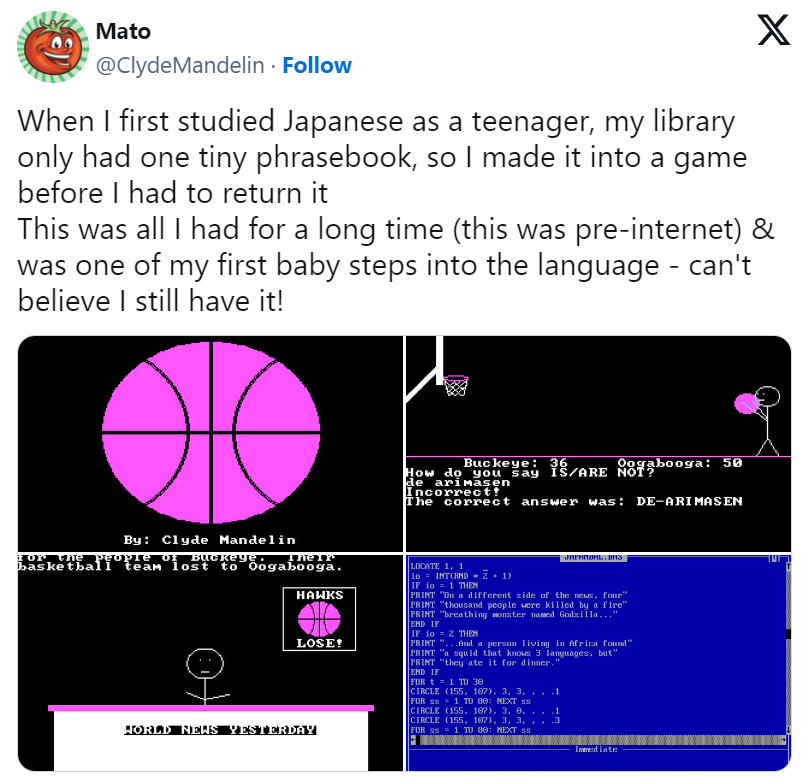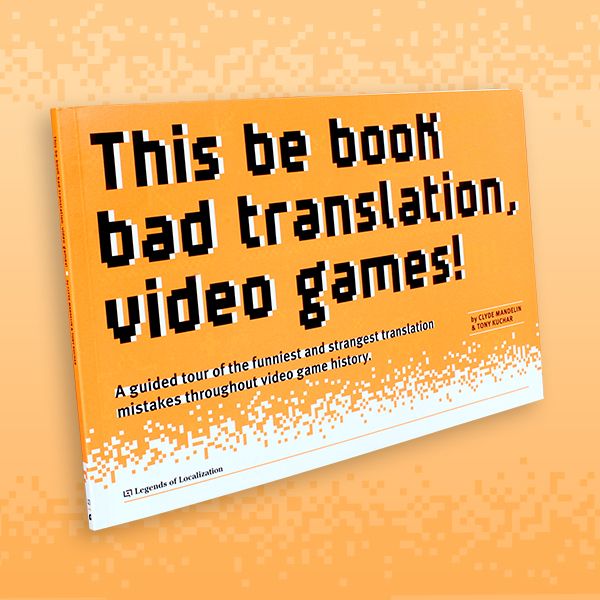Below are some of the most common questions I receive. If you have a question that isn’t answered here and really need an answer, contact me here.
FAQ Table of Contents
- Helping the Site – how to support my work, donation stuff, how to send things in the mail
- Articles & Books – suggesting article ideas, being a guest article/book author, suggesting book ideas, shipping costs
- Studying & Careers – learning Japanese (or any language really), how to get translation jobs, how to be a good translator, how I personally got into Japanese-to-English translation
- Interviews & Other Requests – interviews, conventions, asking for translation help, hiring me for professional translation work
Helping the Site
How can I help?
There are two main ways you can support me and my work:
- Buy my books – even if you’re not a fan of the specific series or topic, I guarantee you’ll learn a lot and still have a lot of fun. In fact, I write all my books with non-fans and non-experts squarely in mind.
Even if the books just aren’t your thing, though, maybe you know someone who might like them – friends, family members, classmates, etc. Or you could just buy some books and donate them to a school or a library. That way, you’ll be helping others and supporting the site at the same time. - Share my articles with friends who’d enjoy them.
My problem is this: not many people wake up in the morning and think, “Woohoo! Today I’m gonna go read about video game translations!” But I also always hear, “Man, how did I never know about this site until now?!”
Basically, there’s a lot of people out there who’d enjoy my articles – they just don’t know that this site exists. So if you know of anyone like that, it helps them and me if you share my stuff with them!
Do you take donations?
No, I don’t take monetary donations or anything else.
Can I ask you stuff? Can I send you stuff in the mail?
If for some reason you need to contact me, you can send it via physical mail here:
Legends of Localization c/o Fangamer5505 E Speedway Blvd
Tucson, AZ 85712
I can’t guarantee I’ll respond, but I’ll try to help if I can.
Articles & Books
Can you write an article or book about ______?
My reader request backlog grew so overwhelming that I’m not taking any requests for articles or books for now, but this will probably change at some point.
Do you do articles besides Japanese-to-English stuff?
My articles and books focus on Japanese-to-English because that’s my specialty, but I would love to branch out and post articles about other language pairs. I just don’t have the know-how to do it myself until I learn even more languages.
Can you let me work on something with you?
Right now I’d prefer to keep things simple and work on things alone. Personally, I’d much rather read your translation articles from your translation site. So if you do start your own translation comparison site, let me know so I can keep up and learn from you instead!
Can I get your books in digital form?
Some are in digital form now, but most are currently only in physical form. Please contact Fangamer if your digital needs are not being met – this stuff is mostly out of my hands.
Is there any way to get cheaper international shipping?
Fangamer sometimes has discounted international shipping sales, so that’s a good time to buy if shipping costs are normally too much. Again, note that I don’t actually handle the book production or shipping myself, I just do the writing.
Studying & Careers
How can I start learning Japanese?
It’s tough to answer this because everyone’s situation is different. Here are some articles I’ve written that might help, though:
- Learning Japanese & Becoming a Translator – this contains a lot of info, some of which isn’t just for learning Japanese, but it should have some useful info
- The Road to Becoming a Professional Japanese->English Translator (Part 1) – don’t let the title fool you; this is almost entirely about learning Japanese. I wrote this 18+ years ago and meant to make a Part 2, but never did
- Informative / Educational Articles – you can find many more of my articles about the Japanese language, culture, translation industry, and more here
There are so many resources available today that I never even dreamed of when I started studying the language. Try a bunch of different sites, old textbooks, YouTube channels, community forums, and anything else you can think of.
And, of course, the three biggest things I’d recommend are to study Japanese in school if you can, study in Japan after you’ve hit the intermediate level of proficiency, and try translating something large like a novel. Not everyone can pull all three of these things off, but just try your absolute hardest before convincing yourself it’s impossible.
How did you learn Japanese?

After that I took college courses during my high school summer breaks. I stopped studying for a few years, and then decided to pick it back up by studying in Japan. After that, I just tried to read, watch, listen, etc. as much as I could and started translating small things. Eventually I translated a novel in my spare time between college classes. Beyond that, it just became a matter of absorbing and learning just like you continue to learn new English words all the time even though you already know English pretty well.
Anyway, check out the articles above and this old Gamasutra interview for more details. If you’re really interested, there’s also a movie called EarthBound USA that briefly looks at how I got into Japanese, how I studied, what I did with my studies, etc.
How can I get good at translating?
First, you have to get good at understanding the source language and get good at writing in the target language. Practice all the time by translating all kinds of different things: pamphlets, comics, web pages, magazine articles, books, videos, game text, podcasts, washing machine instructions… Think of it as being like Rocky doing his training montages, except you’re hunched over a desk instead of frolicking on the beach.
It’s also extremely helpful to pay attention to how other people have translated things. Doing side-by-side comparisons can teach you so many tricks and how to avoid certain traps.
Also, always keep this graph about experience and confidence in mind as you progress – watch out for being overconfident when you start out.
I would also personally recommend two of my books if you’re hoping to learn about translation and Japanese:
- My book about Undertale’s localization from English into Japanese is basically a translation textbook meant for newcomers and experts alike
- My “Passport to Undertale” book transforms the game into an intense Japanese-language bootcamp that parallels how I first taught myself basic Japanese while living in the Arizona desert in the 1990s
My other books will be helpful too, but these two books in particular are the strongest of the bunch.
How much money do translators make?
It depends on the field you’re in, what language pair you’re dealing with, what country you live in, and so on. Japanese-to-English entertainment translation doesn’t make a whole lot of money compared to other fields, so if you’re genuinely considering getting into entertainment translation, keep that in mind. Even with my skills and background I usually fell significantly under the median income.
Also, most translators don’t work in-house – they’re usually freelancers or contractors. This means you’ll usually have to continually hunt for work or work with agencies. Still, if you have some serious skills and are a real go-getter, you can probably make some good money.
Keep in mind that freelancers/contractors have all kinds of additional worries to consider: if you live in America, for example, you have to make estimated tax payments four times a year, you have to pay for your own health insurance, etc. entirely on your own, you’ll have to pay some extra self-employment taxes, and such. When you add all these things up, being a translator can be really stressful – and we haven’t even started talking about translation work itself!
How can I get a job in the translation industry?
There’s no easy answer, but for now I’ve written an article about my own experiences here.
I’m ___ years old. Is it too late for me to learn a new language or get into translating?
No! It’s never too late! Some prolific translators I’ve worked with only started studying in their 30s and 40s. And I know plenty of translators who are even older and still active. Picking up language skills later in life is entirely possible. Age is nothing more than your personal in-game timer. In your eyes, is your timer counting down, or is it counting up?
Interviews and Other Requests
Can I interview you for something?
I’m not really interested in doing interviews for sites, magazines, podcasts, or conventions anymore. I occasionally used to do interviews for student projects, but I’m focused on other things these days and can no longer feasibly respond in a reasonable, timely manner.
Can I hire you?
Sometimes I’ll take on small translation jobs to help people out, but right now I’m not seeking new work.

